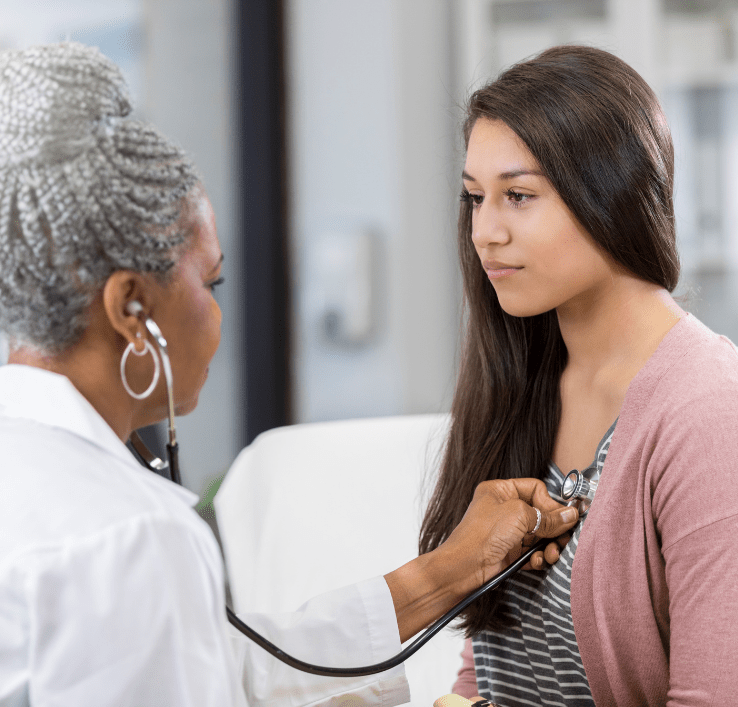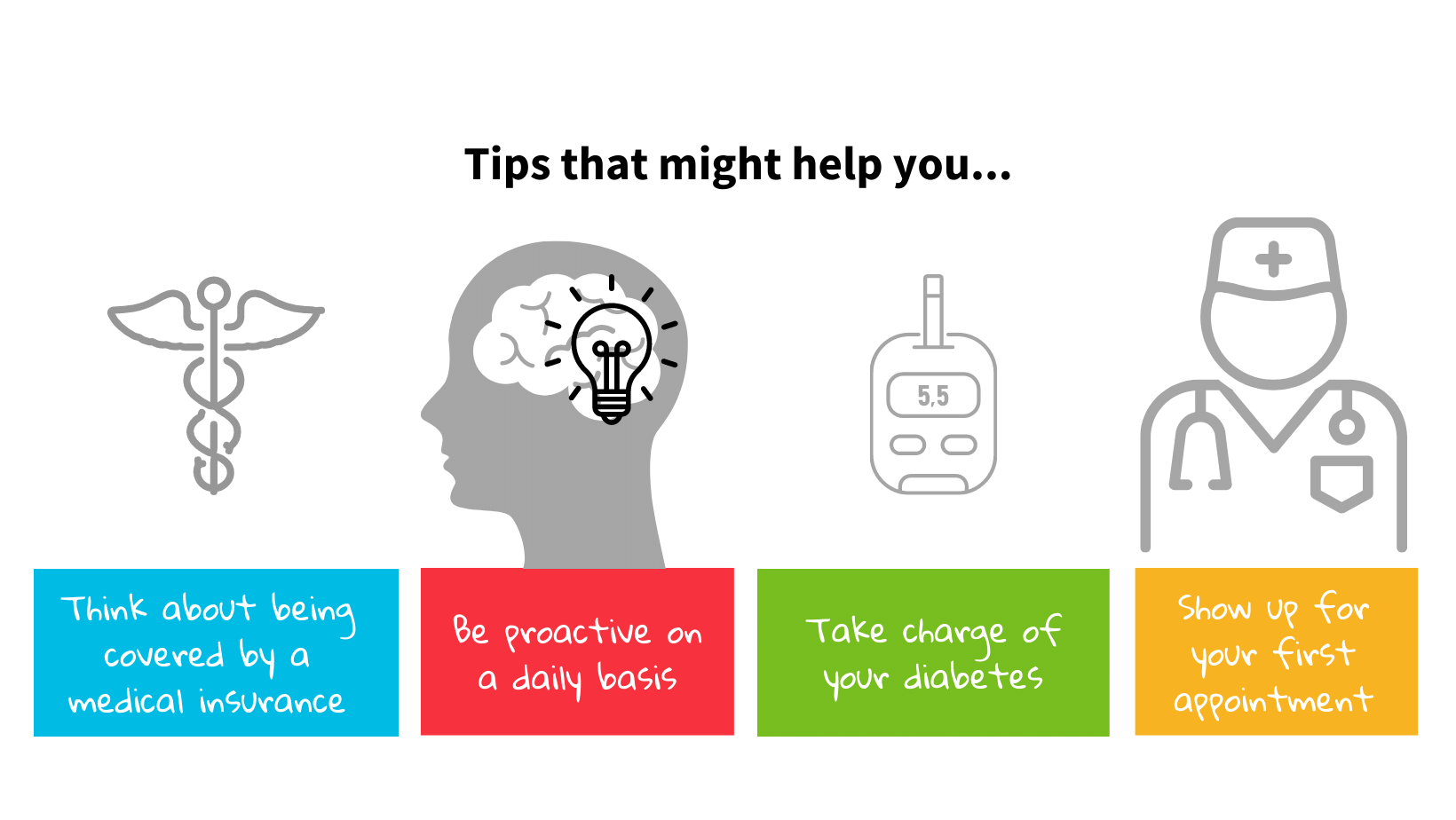support for teens
Transition to adulthood
Home / Transition to adulthood
Transferring to the adult division
When you turn 18, we transfer you to the adult division and help you find the best clinic. You won’t have to look yourself, but your feedback is important. We’ll send a summary of your medical chart to your future doctor.
We will be preparing you for this transfer beforehand.
You’ll need some basic understanding of how to manage your diabetes, including:
- Being able to count carbohydrates.
- Knowing how to set your fast-acting, NPH, Levemir or Lantus insulin.
- Knowing how to set bolus and rate if you have a pump.
- Preventing episodes of hypoglycaemia while playing sports.
- Understanding how alcohol, cigarettes and drugs can affect diabetics.
While you’ll soon be the main person involved in managing your diabetes, you shouldn’t be shy about asking parents or a friend for some help at the start.

Once you’ve been transferred to the adult division, you’ll be primarily responsible for managing your diabetes.
Your transfer
Once you’ve been transferred to the adult division, you’ll be primarily responsible for managing your diabetes. Adult division staff will be there to help you as well. You simply need to be on top of the curve in managing your diabetes from one day to the next. Definitely don’t make the mistake of deciding nothing and leaving it all until you see your doctor. It doesn’t work that way. You’ve got to be able to take care of yourself.
Health clinics, incidentally, do not provide telephone hotlines outline normal working hours. Plus, if you miss an appointment, you have to go to the trouble of making a new one yourself. There’s no one else to do it.
Remember
- Check your health insurance. You’ve probably been covered through your parents until now. Check if you still will be, once you turn 18. If you have a job, check if it provides insurance coverage.
If you don’t have private insurance, contact the Régie de l’Assurance Maladie for public coverage.
- Come prepared for your visits:
- Upload readings beforehand, if you use a pump.
- Check if you need to renew your prescriptions.
- Write down any questions for your doctor.
Appointments
Make sure to show up at your first appointment. If you don’t you might forget to make a new one. Your file could then be closed by your new clinic. If this happens, we’ll call you and follow up.
At your first appointment, please feel free to ask what happens at your appointments, which will be every three months or so. You’ll be seen by a nurse and possibly the doctor. We’ll explain how you take blood samples — and anything else you’d like to know.
Please read the brochures we’ve prepared for you carefully. They have a host of information that will help you manage your diabetes on your own. Our nurses and doctors will be happy to answer any questions, as well. Being well informed is essential.

Source
Diabetes Section Team
Ste-Justine UHC
University of Montreal



